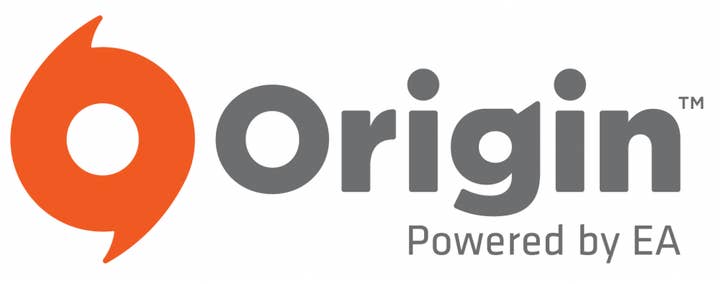Steam sales "cheapen intellectual property" says EA Origin boss
David DeMartini, head of EA's Origin, talks about a rocky first year and how EA wants Origin to be the hub for gamers
David DeMartini is Senior Vice President of Global Ecommerce for Electronic Arts, and that means that EA's much-maligned Origin digital distribution service is his baby. The service has had some difficult patches in its first year, and GamesIndustry International sat down with DeMartini at E3 to find out if things are getting better.
Origin is in a constant state of improvement, at our official one year birthday. When you see it at the month-to-month level sometimes it's hard for our customers to see what we're doing, to see the bigger picture unfold. When you look at the year in totality, we did a tremendous amount of foundational work. We made sure we had a highly reliable commerce capability, buttoned down our merchandising, added features like friends and chat and in-game overlay, cloud saves, being able to purchase things in-game reliably. All of these are foundational pieces.
At the same time, as Gabe [Newell, of Valve] quickly pointed out, "Yeah, but what's so great about any of those features?" You might say they're all well done; in many cases they're what somebody else did, and they're kind of the minimum price of admission of having a high-quality service like we're trying to have. Now what we're emerging into is differentiating ourselves in this second year of existence into the kinds of things that EA differentiates itself on. The service should be a reflection of that.
We were kind of building the aircraft carrier while at the same time lining up planes to land. We were at 1 million downloads, and we're now at almost 13 million downloads. We've got over 50 publishing partners from the industry, and we generated over $150 million in revenue, which was almost a 400 percent increase over last year's total. From a numbers standpoint, we landed all those planes. But again, EA is a very challenging place. When we go up on the boards, and we go to the forums, and to Reddit, we keep track of what our customers are saying - they want more, and they expect more. I expect more, and everybody on my team expects more. We want to have a 90+ Metacritic service just like every game team that works on a game at EA wants to have a 90+ Metacritic game. No one ever sets out to release a 75!
Yeah, but as the comedian says, "Nobody cares!" Nobody cares that it's hard, because it is really hard. We don't make any excuses and EA doesn't believe in having any excuses. We've got to continue to make the service better, dramatically better, and stickier, on a quarter by quarter basis throughout this entire fiscal year and that's what we intend to do. That's what we've lined up, and now it's really a matter of execution against our plans, to give people the kind of differentiated service that will make Origin unique in the industry. That's not a value judgment on "It'll make it better than Steam, it'll make it better than Impulse." It will be its own thing and it will be really good, and the customers get to choose.
"We've got to continue to make the service better, dramatically better, and stickier, on a quarter by quarter basis throughout this entire fiscal year"
David DeMartini
Yes, you have to be smart about how you re-engage. Maybe it's twice as hard to re-acquire them the next time.
We've had a ton of phone calls, because anybody who's looking to be crowd-funded has called and said "This seems to good to be true!" And we say it's too good to be true, but it is true. If you have a successfully crowd-funded venture, the first 90 days of sales on Origin is free of any fee for Electronic Arts. This was the first thing Origin did that no one could complain about. The hardcore loves crowd-funding, and that hardcore has been a little tough on Origin the last twelve months, so we figured this is something we could do that is going to please the hardcore; it's going to please the independent development community, and it just seemed like a great idea all the way around.

By removing that, a lot of the uncertainty goes away. That doesn't mean they're all going to be million sellers, but I'm hoping that by the time we release our first one we could have 15 to 20 million who are regularly launching the Origin application. That gives a small title an opportunity to be exposed to a huge audience. If you've got an idea, and you're able to take it soup to nuts and put it out there, the ultimate judge now becomes not the twelve hurdles I need to jump through; the ultimate judge becomes the consumer, the game player. I think that's what every game developer wants - they just want to be judged by the target audience they're trying to satisfy.
If it's finished, if it's credible, if it's testable, we're going to post it.
"If it's finished, if it's credible, if it's testable, we're going to post it."
David DeMartini
The basic price of admission over the next twelve months is to continue to make everything better. Smaller memory footprint, easier to install, easier experience, all that kind of stuff. But nobody cares about that kind of stuff; they expect that you're going to be doing that. What we're going to lean into is the same kind of things EA is leaning into. You want to game, and you're going to brag and challenge amongst your circle of friends. So we're going to be leaning into seeing your achievements, posting your achievements to your friends, to be able to challenge your friends to take on achievements that you might have already achieved, even creating a meta-layer of achievements saying "I've achieved this in these four EA games, can you do that?"
Most importantly, cross-platform. You probably don't just game on a PC or just on an Xbox; we're playing on PS3, we're on Xbox, we're on PC, we're on social, we're on mobile, and we want to be the centerpiece, the hub, where all those achievements on all of those platforms come together. Because that's how you challenge amongst your friends. You may challenge them in Scrabble on an iPad, and you may challenge them on the number of head shots in Battlefield or what you've been able to do with Batman. That's where we're going to go. Origin will be a closer reflection of the diversity that EA has with its platform configurations.
Origin has the opportunity, being platform-agnostic, to be that centerpiece, to be that hub. We can surface all of the information about EA games you play to your friends, if you want, because we can keep track of that. And if you buy Batman through Origin, we can surface that information too, if you authorize it.
We won't be doing that. Obviously they think it's the right thing to do after a certain amount of time. I just think it cheapens your intellectual property. I know both sides of it, I understand it. If you want to sell a whole bunch of units, that is certainly a way to do that, to sell a whole bunch of stuff at a low price. The gamemakers work incredibly hard to make this intellectual property, and we're not trying to be Target. We're trying to be Nordstrom. When I say that, I mean good value - we're trying to give you a fair price point, and occasionally there will be things that are on sale you could look for a discount, just don't look for 75 percent off going-out-of-business sales.
Actually, Gabe will usually say it improves sales in other channels because if the game is good there are some water-cooler moments and it has a spring-up effect. Without revealing too much, what I'll say is one way to deal with aging inventory is you do deep discounts like that. There are other ways, which I can't really talk about, of dealing with product as it ages over a period of time, where you present a value to the customer and you engage them in your service on a going-forward basis. We don't believe in the drop-it-down, spring-it-up, 75 percent off approach, but we've got something else that we do believe in that we'll be rolling out.
But I absolutely understand your point, and I'm not not-hearing what you're saying. We don't have the old-school approach that you're describing; we're all about building as big a universe as we can, and there are multiple ways to build the universe. One way is to discount the price, the other is to form a longer-term relationship with them and draw them in that way.
Also what Steam does might be teaching the customer that "I might not want it in the first month, but if I look at it in four or five months, I'll get one of those weekend sales and I'll buy it at that time at 75 percent off." It's an approach, and I'm not going to say it's not working for Valve. It certainly works for Valve; I don't know if it works as well for the publishing partners who take on the majority of that haircut.

